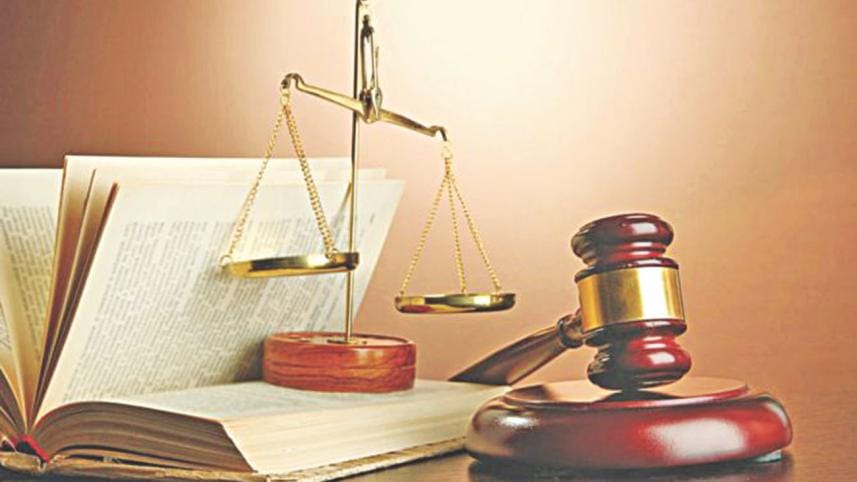Opinion: Laws favouring bureaucrats!

The government's latest legislative move has made bureaucrats happy. It was evident when Dhaka Divisional Commissioner Zillar Rahman at the District Commissioner (DC) conference on Tuesday thanked Prime Minister Sheikh Hasina for her cabinet's approval to proposals of enacting a civil service law and for bringing changes in the Mobile Court Act, 2009.
Why have the proposed legislations made bureaucrats happy? The reason is very simple. A provision of the proposed Civil Service Act will provide civil servants with a legal shield from criminal cases filed against them while discharging their official duty. This means a public servant committing criminal offence like graft, bribe and extortion cannot be detained without permission of the government before the chargesheet is accepted by a court. This provision, if enacted, will put public servants in a privileged class and such a privilege will be discriminatory, as no other citizen in the country will be entitled to such privilege.
Now let's come to the proposed changes in the Mobile Court Act, 2009. The proposed amendments to this law will give executive magistrates, who are admin cadres, more power to punish an alleged wrongdoer even after he denies the offence. This will add new muscle to their judicial clout. The existing provision of the 2009 Act empowers executive magistrates to punish an alleged offender only after he admits of any wrongdoing.
Running mobile courts through executive magistrates, in fact, has become an effective mechanism for the bureaucracy to regain their judicial clout they had lost after separation of the judiciary from the executive in November 2007. This had infuriated the admin cadres who had staged agitation against clipping of their judicial powers. To pacify them, the then caretaker government vested them with some judicial powers to run the mobile courts. In exercise of that power, they were allowed to punish any wrongdoer with only monetary fines.
But Awami League, which assumed power in January 2009, offered them some more judicial power. It had enacted the Mobile Court Act in 2009, empowering the executive magistrates running mobile courts to sentence a guilty person to a maximum jail term of two years, along with a monetary fine. More than 100 laws have been included in the schedule of the mobile court law, allowing executive magistrates to hold trial of the guilty parties under those laws. In the just concluded DC conference, some DCs have demanded that the government give the mobile court more powers. The government might just respond to the demand as a means to keep them happy.
Earlier, the government had amended the Anti-Corruption Commission (ACC) Act 2004, making it mandatory for the ACC to take permission from the government to file any graft case against any civil servant. It had also enacted the Contempt of Court Act in 2013, giving bureaucrats special protection from contempt of court. Unfortunately, both moves have proven to be in vain, as the High Court declared them unconstitutional and void.
All these moves have triggered criticism. But the government has paid no heed. It seems to prefer keeping bureaucrats happy, as a means of retaining power.
The position of civil bureaucracy after the country's independence was different. At the beginning, they had no legal protection. They were helpless and vulnerable. Bangabandhu Sheikh Mujibur Rahman occasionally censured bureaucracy in public meetings, cautioning bureaucrats about performing to their full potential. The government enacted a law in 1972 empowering itself to send any public servant on retirement. The draconian law had brought an end to the more than one hundred year long legal protection to bureaucrats. They had enjoyed a basic legal protection since the days of the British Raj which had protected them from arbitrary dismissal by the government. This protection was there in the government of India Act 1919 and later in 1935, which had continued till 1971.
The martial law regime after August 15, 1975 changeover probably appeared as a blessing for the bureaucracy as they used the military rulers to regain their position in the administration. During the 15 years of martial law and semi-martial law since 1975, the bureaucracy has appeared as a strong force. And the governments formed since the restoration of parliamentary democracy in 1991 could not overlook the power of bureaucracy. The government's strategy has changed to favour the bureaucracy. In the last two decades, successive governments have used the bureaucracy for partisan purposes. The bureaucracy has been highly politicised. In return, bureaucrats have been given many undue favours.
The way the government has made moves in the last two years to enact laws to give undue privileges to the bureaucrats has left an ominous sign for the future. The government may rely more on the bureaucracy to retain power. And it may be difficult for the government to establish its control over bureaucracy without giving it undue benefits from time to time.
The writer is Senior Reporter, The Daily Star.




 For all latest news, follow The Daily Star's Google News channel.
For all latest news, follow The Daily Star's Google News channel.
Comments